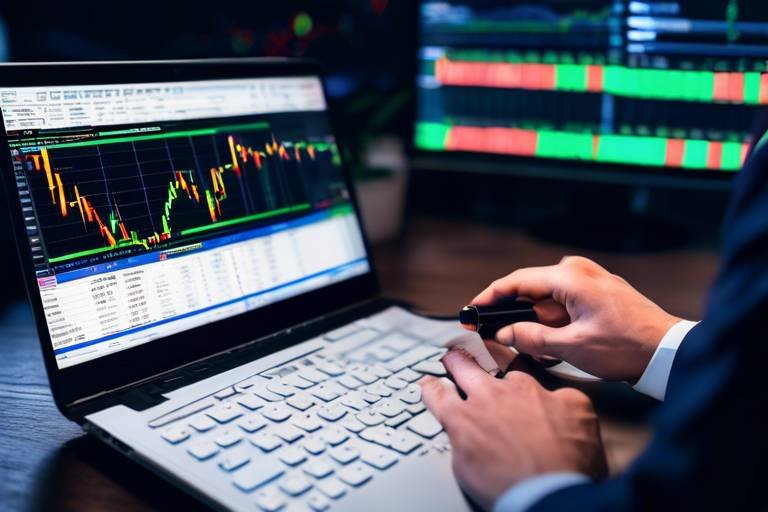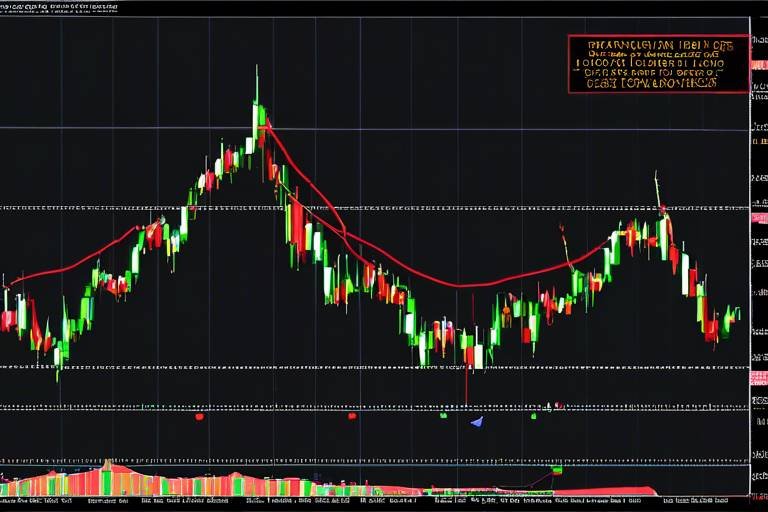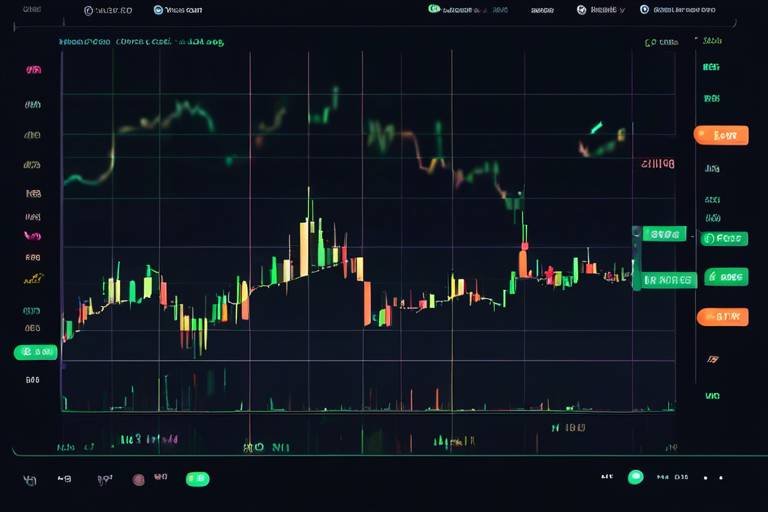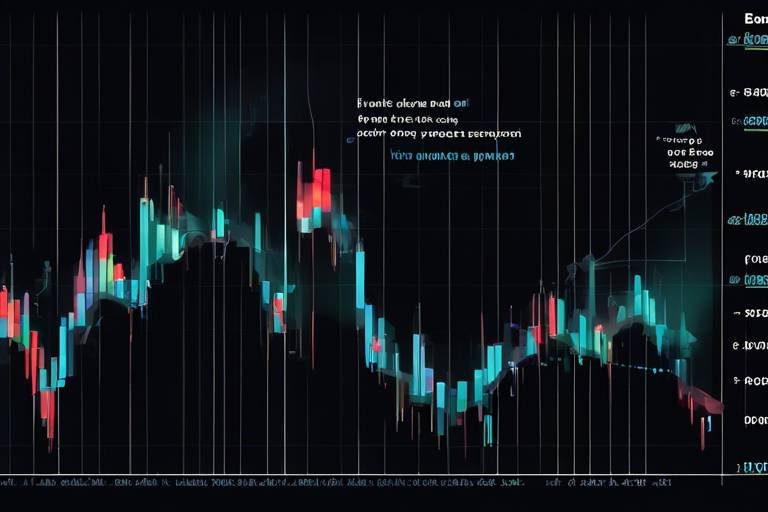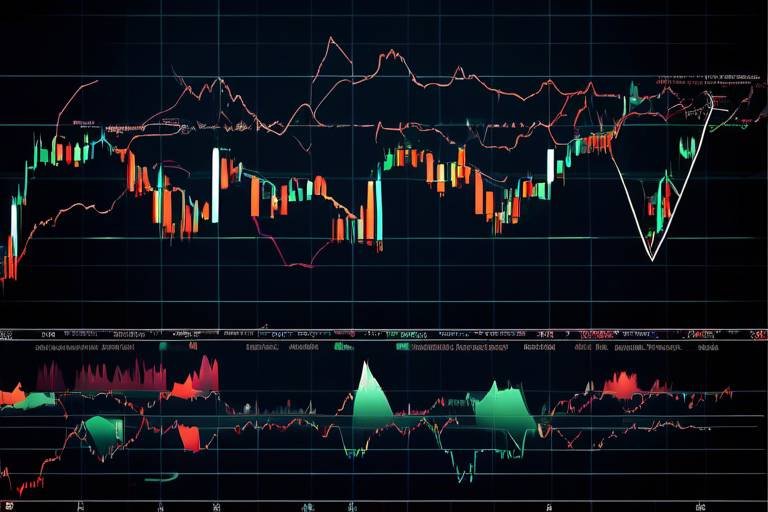The Role of Trading Psychology in Technical Analysis
In the fast-paced world of trading, where numbers flash across screens and decisions must be made in the blink of an eye, one might think that success hinges solely on technical analysis and market indicators. However, the reality is far more complex. The psychological aspect of trading plays a pivotal role in shaping a trader's decisions and overall performance. Understanding how trading psychology influences technical analysis is crucial for anyone looking to navigate the financial markets effectively.
Trading psychology encompasses a wide range of emotional and cognitive factors that can significantly impact a trader's actions. Emotions such as fear, greed, and confidence can cloud judgment and lead to irrational decision-making. For instance, when faced with a potential loss, a trader might hold onto a losing position longer than they should, hoping for a turnaround. Conversely, the fear of missing out (FOMO) can push a trader to enter a trade impulsively, often resulting in unfavorable outcomes. This emotional rollercoaster can undermine even the most meticulously crafted trading strategies.
Moreover, the influence of trading psychology extends beyond individual trades. It shapes a trader's overall approach and mindset. A trader who understands their psychological tendencies can better manage their emotions, leading to more disciplined and consistent trading behavior. This is where the intersection of trading psychology and technical analysis becomes particularly interesting. Technical analysis provides the tools and frameworks for making informed decisions based on historical price movements and patterns, but without the right psychological foundation, even the best analysis can lead to poor choices.
In essence, trading psychology acts as the invisible hand that guides traders through the ups and downs of the market. By recognizing and addressing the emotional factors at play, traders can enhance their decision-making processes, ultimately leading to improved trading performance. As we delve deeper into the nuances of trading psychology, we will explore how emotions like fear and greed impact trading decisions, the importance of discipline, and effective strategies to cultivate a successful trading mindset.
Trading psychology is not just about managing emotions; it's about understanding the underlying psychological triggers that influence our decisions. When traders can identify their emotional responses, they can take proactive steps to mitigate their effects. For example, a trader who recognizes that they tend to panic during market downturns can develop strategies to stay calm and adhere to their trading plan. This awareness is the first step toward mastering the psychological aspects of trading.
Emotions are powerful forces that can dictate trading decisions. The thrill of a winning trade can lead to overconfidence, while the fear of a loss can result in hesitation. It's essential for traders to understand how these emotions can skew their judgment. By acknowledging these feelings, traders can take steps to manage them effectively. For instance, keeping a trading journal can help track emotional patterns and provide insights into how emotions influence decision-making.
FOMO is a common emotional response that can lead traders to make hasty decisions. The urge to jump into a trade because others are profiting can cloud judgment and lead to impulsive actions. It's crucial for traders to recognize when FOMO is influencing their decisions and to develop strategies to combat it. This might include setting clear trading goals or adhering to a well-defined trading plan, allowing for rational decision-making based on analysis rather than emotions.
To combat FOMO, traders can implement several strategies:
- Set Clear Trading Goals: Establish specific, measurable objectives to guide your trading activities.
- Adhere to a Trading Plan: Develop a detailed trading plan and stick to it, regardless of market hype.
- Practice Mindfulness: Engage in mindfulness techniques to remain grounded and focused during trading.
Confidence is a double-edged sword in trading. While it can empower traders to make decisions, overconfidence can lead to reckless behavior. Building a solid foundation of knowledge in technical analysis is essential for fostering genuine confidence. Traders can enhance their skills through practice and simulations, which can help reduce the influence of fear on their decision-making processes.
Greed is another emotion that can derail trading success. The desire for more can lead to overtrading and taking excessive risks, ultimately jeopardizing a trader's portfolio. Recognizing and managing this emotion is critical for maintaining a balanced approach. Setting realistic profit targets and practicing patience can help traders navigate the treacherous waters of greed.
Discipline is the backbone of successful trading. It enables traders to stick to their plans and strategies, even when emotions run high. Developing a disciplined mindset can significantly improve trading outcomes and reduce the likelihood of emotional decision-making. A well-defined trading plan serves as a roadmap, guiding traders through the complexities of the market.
A comprehensive trading plan outlines essential elements such as entry and exit strategies, risk management techniques, and performance evaluation metrics. Adhering to this plan fosters discipline and consistency in trading behavior. It serves as a protective barrier against the whims of emotion, allowing traders to focus on their analysis and strategy rather than being swayed by fleeting feelings.
Regularly evaluating trading performance is vital for identifying emotional patterns and areas for improvement. This self-assessment can lead to better decision-making and enhanced trading psychology over time. By reflecting on past trades, traders can gain insights into their emotional responses and adjust their strategies accordingly, paving the way for future success.
- What is trading psychology? Trading psychology refers to the emotional and mental aspects that influence a trader's decisions, including fear, greed, and discipline.
- How do emotions impact trading decisions? Emotions can lead to irrational behaviors, such as impulsive buying or selling, which can undermine a trader's strategy.
- What is FOMO in trading? FOMO, or the fear of missing out, is the anxiety that one might miss a profitable opportunity, leading to hasty trading decisions.
- How can I build confidence in trading? Building confidence involves gaining knowledge of technical analysis, practicing through simulations, and developing a solid trading plan.
- Why is discipline important in trading? Discipline helps traders stick to their plans and strategies, reducing the influence of emotions on their decision-making.

Understanding Trading Psychology
Trading psychology is a fascinating and complex field that delves into the emotional and mental dimensions of trading. It’s not just about numbers, charts, or indicators; it’s about the human mind and how our emotions can significantly sway our trading decisions. Imagine standing at the edge of a cliff, looking down at the turbulent sea below. That rush of adrenaline, that gut feeling—these are the emotions that traders experience daily in the financial markets. Fear, greed, discipline, and overconfidence are just a few of the psychological factors that can either propel a trader towards success or lead them down a path of costly mistakes.
At its core, trading psychology is about understanding how these emotions impact our decision-making processes. For instance, when traders experience fear, they may hesitate to enter a trade, even if the technical analysis suggests a favorable opportunity. Conversely, when greed takes over, traders might enter positions without adequate risk assessment, driven by the desire for quick profits. This emotional rollercoaster can lead to irrational behaviors that derail even the most meticulously crafted strategies.
Moreover, the psychological landscape of trading isn’t static; it evolves with each market movement. Traders often find themselves caught in a cycle of emotional highs and lows, which can cloud their judgment. Recognizing these emotional triggers is the first step towards developing a more disciplined and rational approach to trading. By cultivating an awareness of their psychological state, traders can begin to implement strategies that mitigate the adverse effects of their emotions.
To illustrate this further, let’s consider a few key emotional factors that every trader should be aware of:
- Fear: This can manifest as a fear of losing money, fear of missing out (FOMO), or fear of making the wrong decision.
- Greed: The desire to maximize profits can lead to taking excessive risks or holding onto losing positions for too long.
- Overconfidence: A trader may become overly confident after a series of wins, leading them to underestimate risks.
- Frustration: Continuous losses can lead to frustration, prompting traders to make impulsive decisions in an attempt to recover losses.
Understanding these emotional dynamics is crucial for any trader looking to succeed in the volatile world of financial markets. By acknowledging the role of trading psychology, traders can better prepare themselves to face the challenges ahead, ultimately leading to more informed and rational decision-making. In the end, trading is not just about the strategies or tools at your disposal; it’s about mastering your mind and emotions to navigate the unpredictable waters of the market.

The Impact of Emotions on Trading Decisions
When it comes to trading, emotions can be both a friend and a foe. They have a profound impact on how traders make decisions, often leading them down paths that can either result in significant gains or devastating losses. Imagine being on a roller coaster; the highs of excitement and the lows of fear can make the ride thrilling yet unpredictable. In trading, emotions like fear and greed often dictate when to buy or sell, affecting the overall performance of a trader's strategy.
One of the most common emotional triggers in trading is the fear of missing out (FOMO). This feeling can cause traders to jump into trades without proper analysis, driven by the anxiety that they might miss a profitable opportunity. It's akin to seeing a crowd rushing towards a sale; the impulse to join in can overshadow rational thinking. This impulsiveness can lead to poor decisions, resulting in losses that could have been avoided with a more measured approach.
Consider the following table that highlights the emotional triggers and their potential impacts on trading decisions:
| Emotion | Impact on Trading |
|---|---|
| Fear | Can lead to missed opportunities or premature exits from profitable trades. |
| Greed | May result in overtrading and taking excessive risks, leading to significant losses. |
| FOMO | Encourages impulsive trading decisions, often without proper analysis. |
| Overconfidence | Can lead to underestimating risks and overcommitting to trades. |
To counteract these emotional influences, traders can adopt several strategies. For instance, recognizing when emotions are driving decisions is crucial. Keeping a trading journal can help identify patterns of behavior that correlate with emotional states. By documenting trades and the emotions felt during those trades, a trader can better understand how their feelings influence their decision-making.
Moreover, it's essential to have a well-defined trading plan. This plan acts as a safety net, providing guidelines on when to enter and exit trades, as well as how to manage risks. By sticking to this plan, traders can minimize the impact of emotions on their decisions. Think of it as a GPS for your trading journey; it keeps you on track even when the emotional landscape becomes turbulent.
Ultimately, understanding the impact of emotions on trading decisions is a vital step towards becoming a successful trader. By acknowledging these feelings and implementing strategies to manage them, traders can enhance their performance and make more rational, informed decisions. After all, trading is not just about numbers and charts; it's also about mastering the mind.
- What is trading psychology? Trading psychology refers to the emotional and mental aspects that affect a trader's decisions, including fear, greed, and discipline.
- How do emotions influence trading decisions? Emotions can lead to impulsive decisions, missed opportunities, and irrational behavior, which can negatively impact trading performance.
- What is FOMO in trading? FOMO, or fear of missing out, is the anxiety that drives traders to make hasty decisions to avoid missing profitable opportunities.
- How can I manage my trading emotions? Strategies such as maintaining a trading journal, creating a detailed trading plan, and practicing mindfulness can help manage emotions in trading.

Fear of Missing Out (FOMO)
The Fear of Missing Out, commonly referred to as FOMO, is a powerful emotional driver that can significantly impact a trader's decision-making process. Imagine standing in a crowded room where everyone is discussing the latest stock surge, and you feel that twinge of anxiety because you haven't jumped on the bandwagon yet. That feeling is FOMO in action. It can compel traders to make impulsive decisions, often leading to buying at peaks or selling at lows, which can be detrimental to their overall performance.
FOMO is particularly prevalent in the fast-paced world of trading, where market trends can change in an instant. When traders see others making profits, the instinctive reaction is to join in, often without conducting the necessary analysis. This emotional response can cloud judgment and lead to choices that deviate from a well-thought-out trading strategy. The result? A cycle of regret and emotional turmoil that can severely undermine a trader's confidence and effectiveness.
To illustrate the impact of FOMO, consider the following table that outlines common scenarios where FOMO can arise and their potential consequences:
| Scenario | Potential Consequences |
|---|---|
| Seeing a stock rise rapidly | Buying at a peak price, leading to immediate losses |
| Hearing about a trending cryptocurrency | Investing without research, resulting in poor investment choices |
| Watching peers profit from a specific trade | Overtrading and taking excessive risks, jeopardizing capital |
Recognizing FOMO is the first step towards overcoming it. Traders can implement several strategies to mitigate its effects. For instance, setting clear trading goals and adhering to a predefined trading plan can provide a structured approach that helps keep emotions in check. By focusing on long-term objectives rather than short-term gains, traders can cultivate a more rational mindset.
Moreover, developing confidence in one's trading abilities plays a crucial role in combating FOMO. Engaging in thorough research and practicing through simulations can bolster a trader's knowledge and self-assurance. This preparation not only equips them with the necessary skills but also reinforces their ability to stick to their strategies, even when the market appears to be moving rapidly.
In essence, while FOMO is a natural human emotion, it does not have to dictate trading behavior. By acknowledging its presence and implementing strategies to counteract it, traders can enhance their decision-making processes and improve their overall trading performance.
- What is FOMO in trading? FOMO, or Fear of Missing Out, is the anxiety that traders feel when they believe they are missing profitable opportunities, often leading to impulsive decisions.
- How can I overcome FOMO? You can overcome FOMO by setting clear trading goals, adhering to a well-defined trading plan, and building confidence through research and practice.
- Why is FOMO harmful to trading? FOMO can lead to irrational decision-making, causing traders to buy high and sell low, ultimately resulting in losses and emotional distress.

Strategies to Overcome FOMO
Overcoming the Fear of Missing Out (FOMO) is crucial for traders who want to maintain a disciplined approach in the often chaotic world of financial markets. FOMO can lead you to make hasty decisions, often resulting in losses that can be difficult to recover from. So, how can you combat this tricky emotion and ensure your trading strategy remains intact? Here are some effective strategies:
First and foremost, setting clear trading goals is essential. When you know what you want to achieve, it becomes easier to focus on your objectives rather than getting swept away by market hype. For example, instead of chasing every trend, you can concentrate on your long-term goals, such as a specific return on investment or a particular trading skill you want to develop.
Additionally, adhering to a well-defined trading plan can serve as your anchor. This plan should outline your entry and exit strategies, risk management rules, and performance evaluation criteria. By sticking to this plan, you create a framework that helps you make decisions based on analysis rather than emotion. Think of your trading plan as a GPS; it guides you through the twists and turns of the market, preventing you from veering off course due to impulsive feelings.
Another effective strategy is to practice mindfulness. This involves being aware of your thoughts and feelings in real-time, particularly when you feel the urge to act impulsively. Techniques such as deep breathing, meditation, or even taking a short break can help you regain composure and make more rational decisions. By recognizing the signs of FOMO, you can pause and evaluate whether your reaction is justified or merely a result of emotional pressure.
Moreover, consider utilizing trading simulations to build confidence in your decision-making abilities. Simulations allow you to test your strategies without the risk of real capital, helping you to understand that missing out on a single trade isn't the end of the world. This practice can significantly reduce the anxiety associated with FOMO, allowing you to approach trading with a more balanced mindset.
Lastly, maintaining a trading journal can be incredibly beneficial. Documenting your trades, thoughts, and feelings can help you identify patterns in your behavior, especially those driven by FOMO. Over time, you'll gain insights into your emotional triggers and can develop strategies to counteract them. By reflecting on your experiences, you can learn to differentiate between genuine opportunities and those driven by fear.
In summary, overcoming FOMO requires a combination of clear goals, a solid trading plan, mindfulness, practice, and self-reflection. By implementing these strategies, you can navigate the markets with a sense of calm and confidence, ensuring that your decisions are well-informed rather than impulsive.
- What is FOMO in trading? FOMO, or the Fear of Missing Out, is the anxiety that traders feel when they believe they are missing a profitable trading opportunity.
- How can I recognize FOMO? You might feel a sudden urge to buy or sell based on market hype or news, even if it contradicts your trading plan.
- Can FOMO be beneficial? While FOMO is generally detrimental, it can serve as a signal to reassess your trading strategies and ensure you are not becoming complacent.
- How do I maintain discipline in trading? By setting clear goals, adhering to a trading plan, and regularly evaluating your performance, you can cultivate discipline in your trading activities.

Building Confidence in Trading
Confidence in trading is not just a nice-to-have; it’s a critical component that can make or break your success in the financial markets. Think of it like riding a bicycle; at first, it feels wobbly, and you might be scared of falling. But with practice, you gain balance and the ability to navigate the road ahead. Similarly, building confidence in trading involves a combination of knowledge, practice, and emotional control.
One of the most effective ways to bolster your confidence is through a solid understanding of technical analysis. This means diving deep into charts, indicators, and patterns. The more familiar you become with these tools, the more confident you’ll feel when making decisions. It’s like learning the rules of a game; once you know them, you can play without second-guessing yourself. Consider dedicating time each week to study various technical indicators, such as moving averages, RSI, and MACD. This practice will not only enhance your skills but also provide a sense of mastery over your trading strategy.
Another way to build confidence is through simulated trading. Many platforms offer demo accounts where you can practice trading without risking real money. This is invaluable because it allows you to experiment with different strategies and learn from mistakes in a risk-free environment. Over time, as you see your virtual trades succeed, your confidence will naturally grow. Just remember, even in a demo account, treat it as if you were trading with real money; this mindset will prepare you for the actual market.
Moreover, maintaining a trading journal can significantly enhance your confidence. Documenting your trades, including the rationale behind each decision, helps you reflect on your successes and learn from your failures. Over time, patterns will emerge, and you’ll begin to see what works for you and what doesn’t. This self-awareness is crucial; it’s like having a personal coach guiding you through the ups and downs of trading. You can identify emotional triggers that may have led to poor decisions and adjust your strategy accordingly.
Lastly, surrounding yourself with a supportive trading community can also foster confidence. Engaging with fellow traders, whether through forums, social media, or local meetups, allows you to share experiences and gain insights. Sometimes, just knowing that others face similar challenges can be incredibly reassuring. You might even pick up some valuable tips or strategies that can enhance your own trading approach.
In summary, building confidence in trading is a multifaceted process that requires knowledge, practice, self-reflection, and community support. By investing time in learning technical analysis, practicing through simulations, keeping a trading journal, and connecting with other traders, you can cultivate a strong sense of confidence that will serve you well in your trading journey.
- What are the best resources for learning technical analysis? There are numerous online courses, books, and YouTube channels dedicated to technical analysis. Look for those that offer practical examples and real-world applications.
- How long should I practice on a demo account? It varies per individual, but aim for at least a few months of consistent practice before transitioning to live trading.
- Can I build confidence without trading experience? Yes! Understanding the theory behind trading, practicing in a demo environment, and reflecting on your learning can help build confidence even without prior experience.

Managing Greed in Trading
Managing greed in trading is a fundamental skill that every trader must develop to achieve long-term success. Greed, often characterized by an insatiable desire for more profits, can cloud judgment and lead to impulsive decisions. When traders allow greed to take the reins, they may find themselves overtrading, risking more than they can afford, or ignoring their well-crafted strategies. It's essential to recognize that while the thrill of a big win can be intoxicating, it can also result in devastating losses if not kept in check.
One effective method to combat greed is to establish clear and realistic profit targets. By setting specific goals for each trade, traders can maintain focus and avoid the temptation to chase after every upward tick in the market. For instance, if a trader aims for a 5% profit on a particular trade, they should stick to that target instead of letting the prospect of higher gains lure them into holding on longer than necessary. This disciplined approach not only helps in managing greed but also fosters a sense of accomplishment when those targets are met.
Additionally, developing a robust risk management strategy is crucial. This strategy should include stop-loss orders and position sizing that align with the trader's overall risk tolerance. By defining how much they are willing to lose on a trade, traders can create a safety net that allows them to exit positions without succumbing to emotional decision-making. For example, a trader might decide to risk only 1% of their total capital on any single trade, which can significantly reduce the impact of greed-driven decisions.
Moreover, keeping a trading journal can be an invaluable tool for managing greed. By documenting trades, including the rationale behind each decision and the emotions felt during the process, traders can identify patterns of behavior that lead to greedy actions. Over time, this self-reflection can provide insights into personal triggers and help traders develop strategies to mitigate the influence of greed. For example, a trader may notice that they tend to hold onto losing positions longer than they should due to the fear of loss, which can be a manifestation of greed.
Ultimately, managing greed in trading is about cultivating a mindset of patience and discipline. It requires traders to remind themselves that the market will always present new opportunities, and that it is better to wait for the right moment than to rush into trades driven by greed. By focusing on long-term goals and maintaining a balanced approach, traders can navigate the financial markets with greater confidence and success.
- What is the impact of greed on trading performance?
Greed can lead to overtrading, excessive risk-taking, and ignoring established strategies, ultimately resulting in significant losses. - How can I set realistic profit targets?
Analyze past performance, market conditions, and your risk tolerance to establish achievable profit targets for each trade. - What role does a trading journal play?
A trading journal helps track your trades, emotions, and decision-making processes, allowing you to identify patterns and improve your trading strategy. - How can I develop discipline in trading?
Creating a well-defined trading plan and adhering to it, along with regular self-evaluation, can help cultivate discipline.

The Role of Discipline in Trading
Discipline is the backbone of successful trading. It’s like the compass that guides you through the tumultuous seas of the financial markets. Without discipline, traders can easily find themselves tossed around by the waves of emotion—fear, greed, and impatience. Imagine you’re on a road trip with a map, but you keep taking random detours because you see something shiny. That’s what trading without discipline looks like! You might miss your destination, or worse, end up lost.
In trading, discipline means sticking to your well-thought-out strategies, even when the market is screaming at you to do otherwise. It’s about having the fortitude to follow your trading plan, regardless of the emotional rollercoaster that comes with market fluctuations. A disciplined trader knows that not every trade will be a winner—just like a marathon runner knows they can’t sprint the entire race. They pace themselves, sticking to their plan and adjusting only when necessary.
One of the key components of discipline is the creation of a trading plan. This plan acts as a roadmap, outlining your entry and exit strategies, risk management techniques, and criteria for evaluating trades. Think of it as your personal trading Bible. Without it, you might find yourself making decisions on a whim, which can lead to disastrous outcomes. A solid trading plan helps you maintain a level head and prevents emotional decision-making. Here’s a simple table that breaks down essential elements of a trading plan:
| Element | Description |
|---|---|
| Entry Strategy | Criteria for entering a trade, including indicators or patterns to look for. |
| Exit Strategy | Conditions under which you will close a trade, whether in profit or loss. |
| Risk Management | Rules for how much capital you are willing to risk on each trade. |
| Performance Evaluation | Methods for reviewing and assessing your trading results over time. |
Adhering to this plan fosters discipline and consistency in your trading behavior. But how do you maintain that discipline, especially when the market throws you a curveball? The answer lies in self-awareness and emotional regulation. Regularly reflecting on your trades can help you identify patterns in your behavior. For instance, do you tend to panic and sell when the market dips? Recognizing these habits is the first step towards improvement.
Moreover, keeping a trading journal can be incredibly beneficial. Documenting your trades, the reasoning behind them, and your emotional state at the time can provide valuable insights. Over time, you’ll start to see where your emotions lead you astray. This self-assessment can be eye-opening, allowing you to adjust your strategies and improve your overall trading psychology.
In conclusion, discipline in trading is not just about sticking to your plan; it’s about cultivating a mindset that prioritizes long-term success over short-term gains. It’s the difference between a trader who jumps at every market movement and one who calmly navigates the waters with a steady hand. So, the next time you find yourself tempted to stray from your plan, remember: discipline is what separates the successful traders from the rest.
- What is trading discipline? Trading discipline refers to the ability to stick to a trading plan and make decisions based on logic rather than emotions.
- How can I improve my trading discipline? You can enhance your discipline by creating a comprehensive trading plan, maintaining a trading journal, and regularly evaluating your performance.
- Why is discipline important in trading? Discipline helps traders avoid emotional decision-making, reduces the risk of losses, and increases the likelihood of long-term success.

Creating a Trading Plan
Creating a trading plan is like drafting a blueprint for a house; without it, you risk building something that might collapse under pressure. A well-defined trading plan serves as a roadmap for traders, outlining the essential elements that guide their trading journey. It encompasses various components, including entry and exit strategies, risk management, and performance evaluation. Just as a ship needs a captain to navigate through turbulent waters, traders need a solid plan to steer through the unpredictable nature of financial markets.
One of the first steps in developing a trading plan is to clearly define your trading goals. Are you looking for short-term gains, or are you in it for the long haul? Understanding your objectives helps tailor your strategies to meet those specific targets. For example, if you are a day trader, your plan will differ significantly from that of a swing trader. Here are some key aspects to consider:
- Risk Tolerance: Assess how much risk you are willing to take. This will shape your entry and exit points.
- Market Analysis: Decide whether you will rely on technical analysis, fundamental analysis, or a combination of both.
- Time Commitment: Determine how much time you can dedicate to trading each day or week.
Once you've established your goals, the next step is to formulate your entry and exit strategies. This involves identifying the indicators that signal when to enter or exit a trade. For instance, you might use moving averages or support and resistance levels as guides. Having clear rules in place not only helps in making informed decisions but also reduces the emotional burden that often clouds judgment during high-pressure situations.
Moreover, risk management is a critical component of your trading plan. It’s not just about how much you can gain, but also about how much you can afford to lose. Setting stop-loss orders is an effective way to limit potential losses. Think of it as a safety net that prevents you from falling too hard when the market takes an unexpected turn. A practical approach might look like this:
| Trade Type | Entry Point | Stop-Loss Level | Take-Profit Level |
|---|---|---|---|
| Long Position | Above resistance | Below support | 1.5x risk |
| Short Position | Below support | Above resistance | 1.5x risk |
Finally, performance evaluation is crucial for continuous improvement. Regularly reviewing your trades allows you to identify patterns in your decision-making process, helping you to refine your strategy over time. Ask yourself questions like: What worked? What didn’t? Were my emotions influencing my trades? By keeping a trading journal, you can track your progress and make adjustments as needed.
In summary, creating a trading plan is not just a one-time task but an ongoing process that requires regular updates and adjustments. As you gain experience and the market evolves, so should your plan. By following a structured approach, you not only enhance your chances of success but also build the confidence needed to navigate the complexities of trading.
- What is the most important element of a trading plan? The most crucial element is risk management, as it protects your capital and helps you survive in the long run.
- How often should I review my trading plan? It's advisable to review your trading plan at least monthly or after significant market changes.
- Can I adjust my trading plan? Absolutely! Your trading plan should evolve as you gain more experience and as market conditions change.

Evaluating Trading Performance
Evaluating trading performance is not just a routine task; it’s a crucial aspect of becoming a successful trader. Think of it as a mirror reflecting not only your trading results but also your emotional responses and decision-making processes. By regularly assessing your performance, you can uncover patterns that reveal how your emotions, such as fear and greed, influence your trades. This self-reflection is essential for honing your skills and improving your trading psychology.
One effective way to evaluate your trading performance is by keeping a detailed trading journal. This journal should include:
- The date and time of each trade
- The asset traded
- Entry and exit points
- Your rationale for the trade
- Emotional state before, during, and after the trade
- Outcome of the trade (profit or loss)
By documenting these details, you can identify trends in your trading behavior. Are you more likely to take risks when the market is volatile? Do you tend to hold onto losing trades out of fear? Recognizing these patterns allows you to make necessary adjustments to your strategy and improve your decision-making process.
Additionally, consider conducting a performance review on a regular basis—perhaps weekly or monthly. During this review, analyze your trading results and emotional responses. Ask yourself questions like:
- What trades were the most successful, and what can I learn from them?
- Which trades resulted in losses, and were they influenced by emotional decisions?
- Am I adhering to my trading plan, or am I deviating from it due to emotional impulses?
This systematic approach not only enhances your understanding of your trading habits but also reinforces a disciplined mindset. It’s about creating a feedback loop where you learn from your experiences, both good and bad. Over time, this practice can lead to improved trading outcomes and a more resilient trading psychology.
In summary, evaluating trading performance is essential for any trader looking to succeed. By maintaining a trading journal and conducting regular reviews, you can gain valuable insights into your emotional patterns and trading behavior. This self-awareness is the key to developing a robust trading strategy that minimizes emotional decision-making and maximizes your chances for success.
1. Why is evaluating trading performance important?
Evaluating trading performance helps you understand your emotional responses and decision-making processes, allowing you to refine your strategies for better outcomes.
2. How often should I evaluate my trading performance?
It’s generally recommended to evaluate your trading performance weekly or monthly, depending on your trading frequency and style.
3. What should I include in my trading journal?
Your trading journal should include details such as trade dates, assets, entry and exit points, your rationale, emotional states, and the outcomes of each trade.
4. Can emotional trading be managed?
Yes, by recognizing emotional patterns and adhering to a well-defined trading plan, you can significantly reduce emotional decision-making and improve your trading performance.
Frequently Asked Questions
- What is trading psychology?
Trading psychology refers to the emotional and mental factors that influence a trader's decision-making process. It encompasses feelings such as fear, greed, and discipline, which can significantly affect trading performance and strategy.
- How do emotions impact trading decisions?
Emotions like fear and greed can dictate when traders buy or sell assets. For instance, fear might push a trader to exit a position too early, while greed could lead to holding onto a losing trade for too long. Recognizing these emotions is key to developing effective trading strategies.
- What is FOMO and how can it affect trading?
FOMO, or the Fear of Missing Out, can prompt traders to make impulsive decisions, often resulting in significant losses. It can lead to entering trades without proper analysis. Understanding and managing FOMO is essential for maintaining a disciplined trading approach.
- What strategies can help overcome FOMO?
To combat FOMO, traders should set clear trading goals and adhere to a well-defined trading plan. This helps ensure that decisions are based on analysis rather than emotional reactions, leading to more rational trading behavior.
- Why is confidence important in trading?
Confidence is crucial for successful trading as it allows traders to make decisions without being overly influenced by fear. By building a solid understanding of technical analysis and practicing through simulations, traders can enhance their confidence and improve their overall performance.
- How can greed be managed in trading?
Managing greed involves recognizing it as a potential pitfall that can lead to overtrading and excessive risk-taking. Traders can maintain a balanced approach by setting realistic profit targets and sticking to their trading plans, which helps avoid impulsive decisions driven by greed.
- What role does discipline play in trading?
Discipline is vital in trading as it helps traders adhere to their plans and strategies, reducing the likelihood of emotional decision-making. A disciplined mindset can lead to improved trading outcomes and greater consistency over time.
- How do I create a trading plan?
A well-defined trading plan should outline your entry and exit strategies, risk management techniques, and performance evaluation criteria. By following this plan, traders can foster discipline and maintain a consistent trading approach.
- Why is evaluating trading performance important?
Regularly evaluating trading performance allows traders to identify emotional patterns and areas needing improvement. This self-assessment can lead to better decision-making and enhanced trading psychology, ultimately contributing to long-term success.




